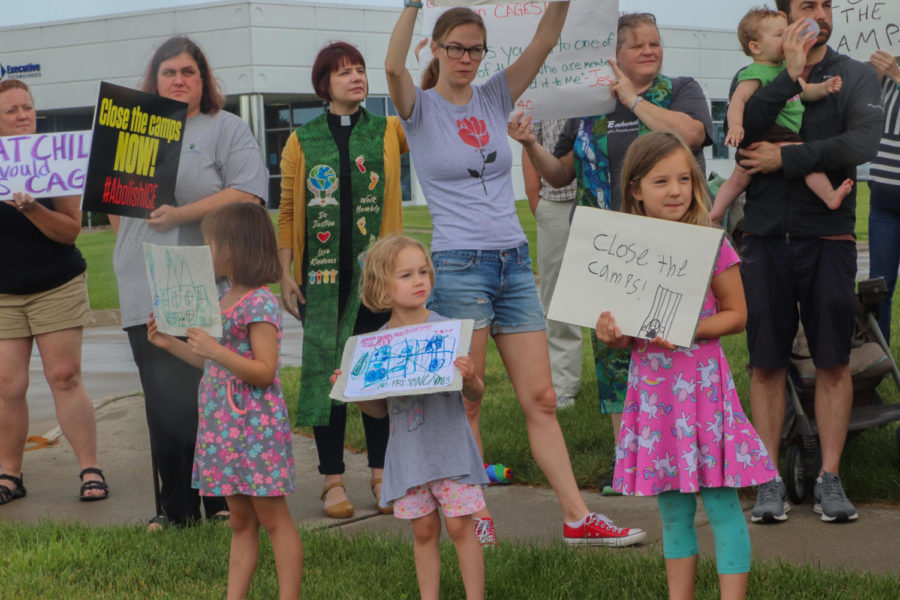Iowa State’s takes on the DACA ruling
Young protesters participate in the #CloseTheCamps protest outside Rep. Steve King’s office on July 2. Protesters demonstrated outside King’s office for the closing of U.S. immigrant detention centers.
June 22, 2020
The Supreme Court blocked the Trump administration’s attempt to end the program that protects undocumented immigrant children brought to the United States.
After the ruling Thursday, Secretary of Homeland and Security Chad Wolf said his agency will continue the Deferred Action for Childhood Arrivals (DACA) as they have over the past few years, but the program is “unlawful,” on Sunday.
It was a 5-4 decision and Chief Justice John G. Roberts Jr. was the tiebreaker and wrote the majority opinion along with four other court members.
“We do not decide whether DACA or its rescission are sound policies,” Roberts wrote. “We address only whether the agency complied with the procedural requirement that it provide a reasoned explanation for its action.”
Mack Shelley, chair of the political science department, presents his takeaways on the recent ruling.
Shelley said if the administration follows the Administrative Procedure Act to the letter the vote could come out 5-4 the other way. With only five months until the presidential election, Shelley said the clock is ticking for the Trump administration to act.
Five members of the court tend to stand on the conservative side of issues and Roberts is typically a part of that group.
“The decision didn’t amount to saying that ‘Trump has no right to rescind DACA,’ the real incentive was on procedural grounds this wasn’t done in the proper way,” Shelley said. “That is the way that Roberts tried to work with liberals on the court, to make it something other than a complete slap in the face to the Trump administration.”
The children protected under DACA are referred to as Dreamers. Members of the Dreamer community are still able to apply to renew their DACA for two more years, will continue to be protected from deportation and are eligible for benefits under the program. Eligible individuals who have never had DACA should be able to apply at this time, according to the Immigrant Legal Resource Center.







